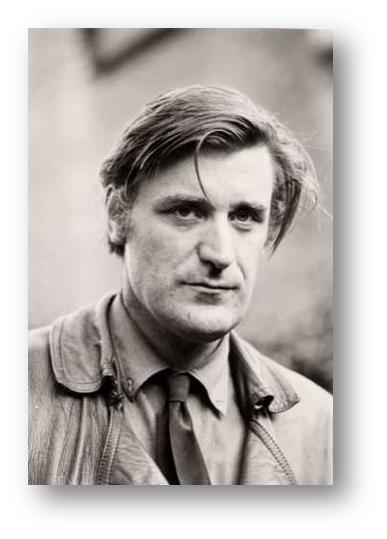When Nadia was running downstairs
from the 6th floor, doing up her dressing gown,
cursing the wind and her mistake
she came across the boy from door 4, floor 4
the one who never says good morning
She put the brakes on her crazy run
having seen the second floor was wet,
she was about to fall near the front door:
her slippers were loose
and she hadn’t found the money nor time
to go to the shoe-repairer
…her precious headcovering flew
and landed at Magda’s feet
the new postwoman, who took it and put it
with sound judgement on a parked motorbike.
Then Fatima, from the halal supermarket, fell
in love with its bright colours,
and although she didn’t wear it,
against her mother’s advice,
she took it thinking to give it
to her close friend Raissa,
who would never dare to go outside
without a hijab covering her hair.
And from the doorway, when Nadia sees
Fatima taking the headscarf off the motorbike,
and the great joy she had on her face
she gave up her claim on the very thing
that Karim, her husband,
didn’t know
was a gift from a clandestine love
with whom, years before,
in Morocco, Nadia had dreamt of a future.
----------------------------------------------------------------------------------------------------
Tot just noranta segons
Mentre la Nàdia baixava l’escala corrents
des d’un sisè pis, cordant-se la bata,
maleint la ventada i el seu error;
es creuava amb el noi del quart quarta,
aquell que sempre li nega el bon dia;
la cursa boja frenava uns instants
veient el terra mullat de la planta segona;
ensopegava a prop de la porta d’entrada:
les sabatilles li anaven balderes
i no havia trobat el moment ni els diners
per dur al sabater...
...el seu objecte preuat voleiava
fins aterrar just als peus de la Magda,
la nova cartera, que amb molt bon criteri
el deixava damunt d’una moto aparcada.
Al moment la Fàtima, del súper halal
s’enamorava de la peça de roba
de colors tan llampants,
i malgrat que, desoint els consells de sa mare,
ella no en duia, la prenia pensant
regalar-la a la Raissa, l’íntima amiga
que mai no gosaria anar pel carrer
sense hijab cobrint-li els cabells.
I quan la Nàdia veu, des del portal,
la Fàtima amb el vel a les mans,
i amb quanta il·lusió aquesta se’l mira,
renuncia a reclamar el mocador
que el seu home, en Karim,
no sap que va ser el regal
d’un amor clandestí
amb qui, uns quants anys enrere,
al Marroc, la Nàdia somiava un futur.
Antoni Cardona i Torras
2022


.jpg)










